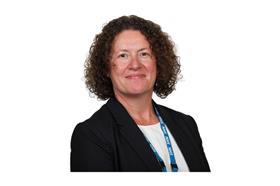Atlantis Medical News
Be ‘more directive’, providers tell NHSE
- < Back to news listing
- < Previous
- Page 11 of 17
- Next >
Be ‘more directive’, providers tell NHSE
By Mimi Launder 19 December 2023
- Community trust CEO Siobhan Melia says urgent community response must be “signalled as an investment priority”
- Otherwise, ICBs will not expand UCR understretched finances
- UCR activity very variable between NHS regions
Urgent community response services must become an investment priority – and be given national targets for expansion – to tackle large variation, trust leaders have said.
Siobhan Melia, chief executive of Sussex Community Foundation Trust, told HSJ that the variability of UCR across England – with some areas processing far fewer referrals relative to their population – was in part because investment has been left to providers and systems, with little national direction.
Ms Melia said: “UCR tends to form part of quite large block-funding arrangements, and that’s where some of the variability across the country comes from. For example, when virtual wards was a national initiative, it had designated national funding to hit particular targets.
“Regardless of how it’s done, UCR needs to be signalled as an investment priority. Without this slightly more directive approach, I think the variability will continue because the financial position is so stretched that some systems will make a choice not to expand UCR.”

Siobhan Melia
Ms Melia’s comments come off the back of a report today from the NHS Confederation and NHS Providers community network, which she chairs.
UCR aims to avoid unplanned hospital stays by providing rapid community care, with a two-hour response standard for the most urgent cases. Providers have been asked to maximise referrals into the service, which NHSE says should be provided consistently and at scale.
Despite a significant increase over the last year in UCR contacts and referrals, activity between NHS regions remains variable (see HSJ graphs below).
The Confed and Providers briefing said “the level of variation we see in the current national data indicates that providers are recording UCR referral activity differently”.
Efforts to boost referrals into UCR teams must be “underpinned by having the right number and mix of staff, as well as sufficient investment into community services”, according to the report, shared with HSJ. Otherwise, it will “be difficult to optimise the potential of UCR services and ensure they can manage any increase in referrals effectively and sustainably”.
To better incentivise the volume of referrals, the briefing suggests that NHSE should introduce a target for the number of UCR referrals for an integrated care system linked to population size, while improving data quality, the report said.
Ms Melia said the current target – for 70 per cent of referrals to be seen within two hours – which is being widely met, ”isn’t going to be as impactful as implementing a coverage target”.
She said including UCR in NHS England’s 2024-25 planning guidance, expected later this week, “would be a good way to get the national level of attention needed”.
“If you’re going to prioritise a service area, UCR can be a game-changer because it impacts the system in terms of flow and mitigating the risks within urgent and emergency care,” she added.
Engaging ambulance services and primary care
The majority of referrals into UCR come directly from patients (see chart), which has been the case since it launched, despite efforts to drive more referrals from ambulance services, to help with lower-priority calls in Categories 2-4.
Ms Melia, who recently returned from secondment as South East Coast Ambulance Service CEO, said the link was improving, but added: “It takes a lot of trust and confidence to decide whether a call is appropriate for UCR, and time to educate staff about which patients can be seen by UCR.” There were also practical barriers to increasing ambulance referrals, like “colocation in call centres”, and problems sharing 999 ‘call stack’ data directly with community teams.
On increasing referrals from primary care, Ms Melia said: “I think it’s fair to say we haven’t really found a way to connect, raise awareness and drive up referrals. We probably need to get a bit more specific with primary care around the patient pathways where UCR could work.”
Earlier this year, NHS England’s community director James Sanderson told HSJ UCR referrals must be maintained all year and embedded as business as usual, rather than acting as “just a short-term fix for winter”. Figures show they have continued to grow since March, though not as steeply as during the winter crisis last December and with limited progress in some regions (see charts above).
HSJ DIGITAL TRANSFORMATION SUMMIT | 8-9 FEBRUARY 2024, PARK REGIS BIRMINGHAM
Join 120+ digital, clinical and operational board leaders from across the ICS and provider landscape at the HSJ Digital Transformation Summit, on 8 – 9 February 2024, Park Regis Birmingham.
Discover how to maximise the potential of digital within your organisation, to fundamentally transform health service delivery, and discover strategies and solutions to the pressing system challenges of today.
Benefit from 30+ interactive sessions with dedicated Q&A time to share/learn best practice and raise challenges with 40+ expert speakers, in a safe Chatham House Rule environment.
Delegate places are fully funded and include overnight accommodation at the Park Regis, and a seat at the networking dinner with an engaging after dinner speaker on 8 February.




Enter text shown in the image